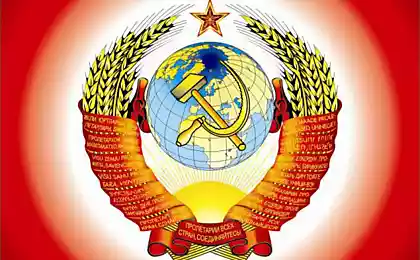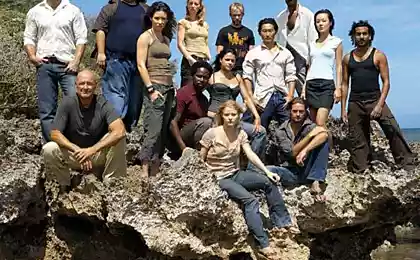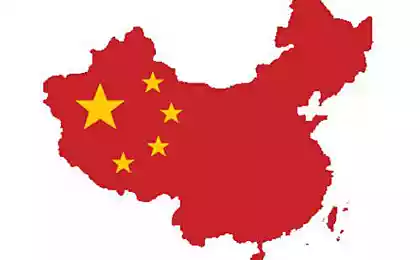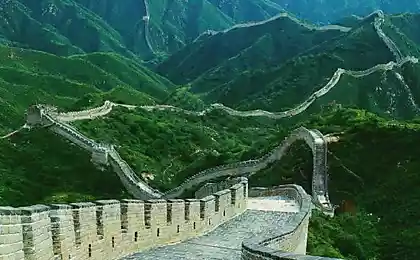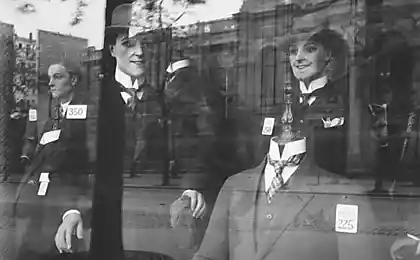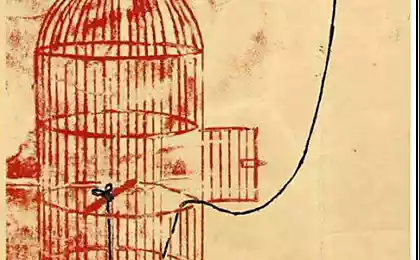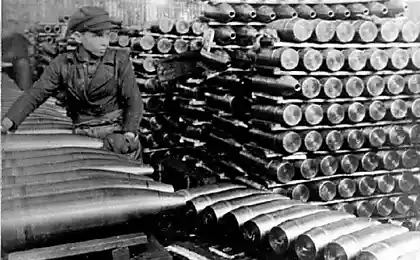762
7 An example of how the fate of countries trying to build communism
The ideas of Marxism-Leninism and the communist state was close not only to the Soviet Union. The world has been and remains a few countries that have declared themselves socialist states. All they existed with different forms of government in different parts of the world and at different times. Combine them only general ideas, and perhaps the overall outcome of events.
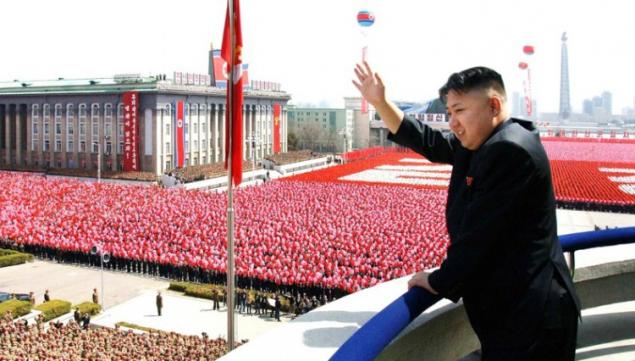
Peoples Republic of China. B>
The largest populous country in the world and to this day is for a one-party parliamentary form of government Socialist Republic. Peoples Republic of China - a unitary republic, socialist state of the people's democratic dictatorship. Since the proclamation of the People's Republic of China itself in 1949, the ruling party is the Communist Party of China. At the moment this is the most advanced and successful of all the existing socialist states. Since 2014, China's economy has become the first economy in the world by GDP.
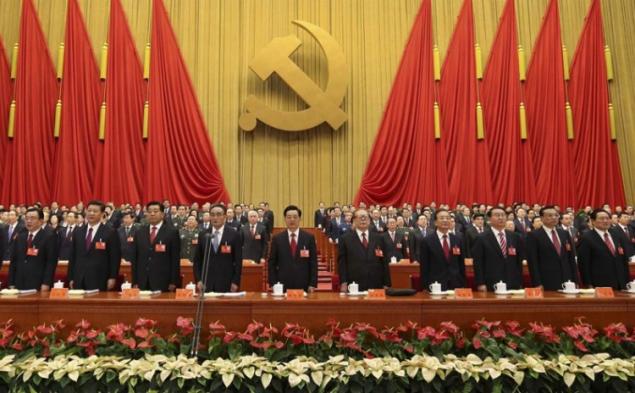
However, despite the growth in the beginning of XXI century, China has faced a number of serious economic, environmental and social problems: increased income gap between rich and poor; It increased the difference in the development of villages and towns, western and eastern, especially coastal areas; increased unemployment in some areas was poisoned earth, soil and hydrosphere. In China, growing street protests. The government is extremely negative attitude towards dissent. The country has blocked almost all the world's social networks and essentially operates its own Internet within one state.
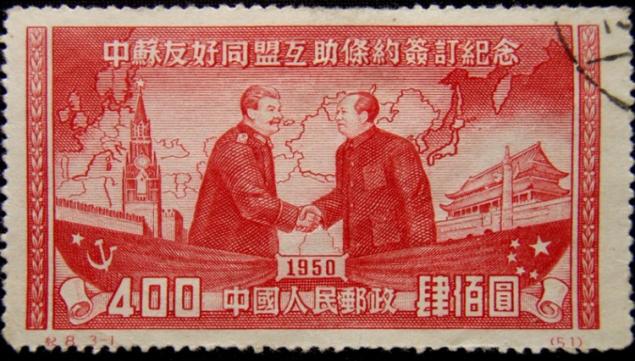
Democratic Kampuchea. B>
Democratic Kampuchea was formed in 1976 as a result of the seizure of power by so-called "Khmer Rouge" in the Khmer Republic. Their ideology based mainly on the rejection of the entire Western and modern. Government of Democratic Kampuchea were the leaders "of the Khmer Rouge." The actual management of the country's life carried out "Angka loeu" - "Supreme organization", which was headed by family clans "Khmer Rouge" leaders, including their wives. The names and portraits of the country's leaders were kept secret from the public.
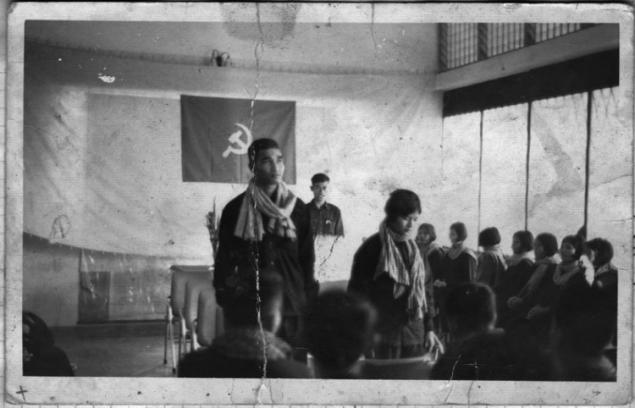
Immediately after coming to power, "Khmer Rouge" set a political dictatorship. They announced a "revolutionary experiment" to build in Cambodia "one hundred percent of a communist society." There have been "canceled" - in fact, wiped medicine, education, science and culture. Hospitals, schools, universities, libraries, and all other cultural and scientific institutions were closed. They were banned money, foreign languages, foreign books. It was forbidden to write and read anything except the decrees and other documents command. Wearing glasses was seen as unreliable and served as one of the counts up to the shootings. There were destroyed, according to various estimates, from 1, 5 to 3 million people during the regime of existence (4 years).
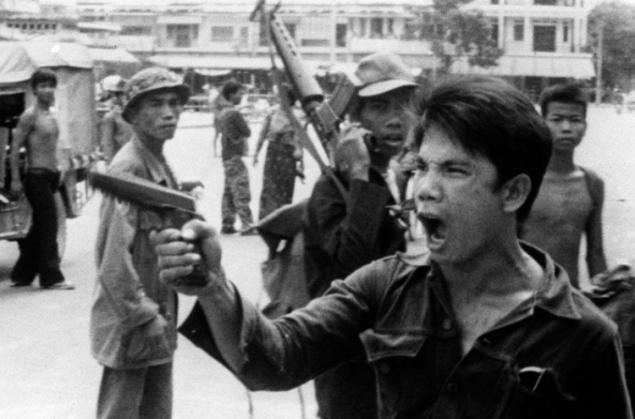
Democratic Republic of Afghanistan. B>
Democratic Republic of Afghanistan existed from 1978 to 1992. It was a one-party parliamentary republic, focused on the construction of the socialist republic of Afghanistan. Priority measures authorities announced debt reduction landless and land-hungry peasants, elimination of usury, and the abolition of the traditional Pashtun Mahora. Plans for the development of the country the government were really ambitious. Eliminated the pre-existing feudal land tenure system, built around 250 industrial enterprises, raising the minimum wage workers by 40-50% * actively tackled the "housing problem", repaired roads, built bridges, restored the health and education systems.
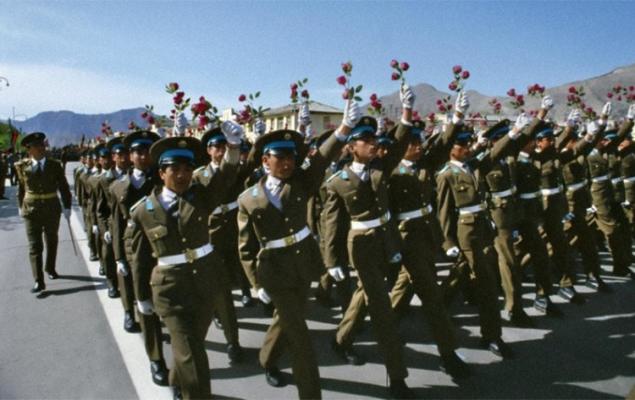
As it is not banal sounds or controversial, but the problems in the existing at that time in the DRA government began just after the Soviet withdrawal. In late 1988, under the control of the Afghan government were 81% of provincial centers, 46, 8% county and township centers, 23, 5% of counties and townships. After the withdrawal of Soviet troops DRA government forces controlled most of the country (26 out of 28 provinces, 114 of the 187 district centers and villages in 6110), while the opposition armed groups controlled two provinces - Bamyan and Tolukan and 76 counties. During 1990 the DRA government army repulsed several attacks of Mujahideen, including assault on Jalalabad, Khost and Kabul. However, in the future, once in international isolation, the government of the DRA could not cope with the Mujahideen. The first half of 1991 it controlled only 10% of the country. In April 1992, the Mujahideen entered without fighting in Kabul and declared Afghanistan an Islamic state. As the British diplomat Roderick Braithwaite, in the second half of the 2000s nostalgia for the DRA was widespread phenomenon among the Afghan population.
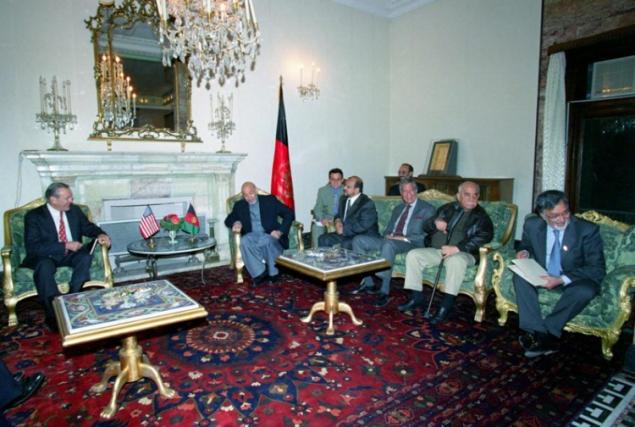
North Korea. B>
The same North Korea, formed September 9, 1948 as the people's democratic state. Power in the country belongs to the Workers' Party of Korea headed by the first secretary of the Central Committee of the Kim Jong Ynom. The official state ideology is Juche, "relying on their strength." The country currently operates scheduled command-type economy, which, of course, very complicated isolation of North Korea from the rest of the world. North Korea is essentially a militarized state with an army of over a million people, despite the fact that all the country's population of about 25 million people. In addition, there are more in reserve to 7, 7 million. Man.
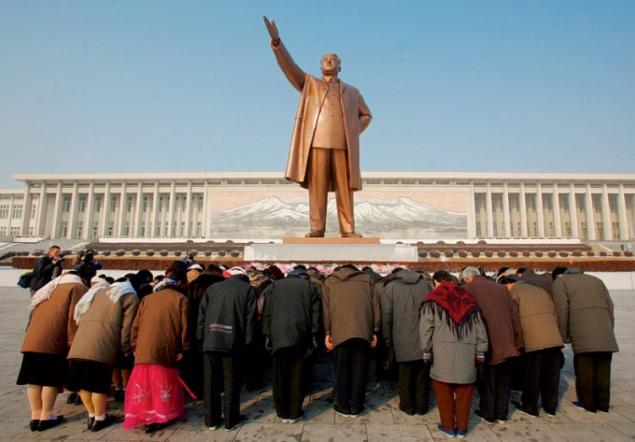
Particularly interesting is the situation with the media and the Internet in North Korea. The country has three TV channels. All television receivers of the population subject to mandatory registration, the frequency settings are locked and sealed by the authorities. Same thing with the radio. Inside North Korea listen to foreign radio is prohibited and punishable by imprisonment. Officially allowed only radios with fixed setting on the North Korean station. The vast majority of the population do not have access to the Internet. Access to the network is only at diplomatic facilities and some foreign companies. The rest of the population can only be used inside the country Gwangmyeong network is not connected to the Internet.
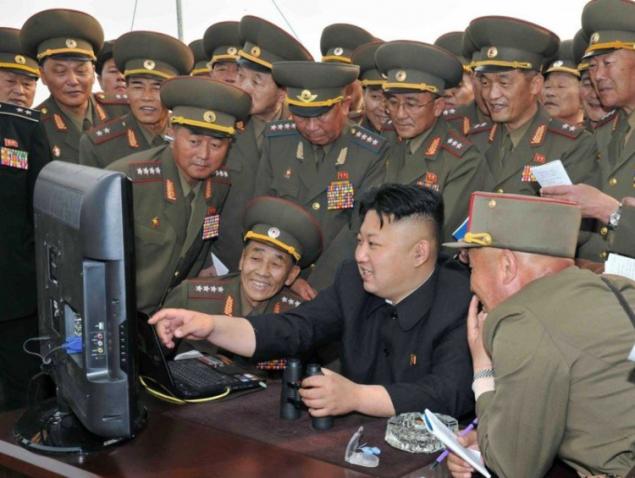
The Republic of Cuba. B>
The form of Cuba is a socialist republic parliamentary type. The majority of deputies in the parliament are the Communist Party of Cuba. Executive power is exercised by the chairman of the Council of State (Head of State), which in practice is both a general secretary of the Central Committee of the Communist Party of Cuba and the Chairman of the Council of Ministers - the second secretary of the Central Committee, respectively
.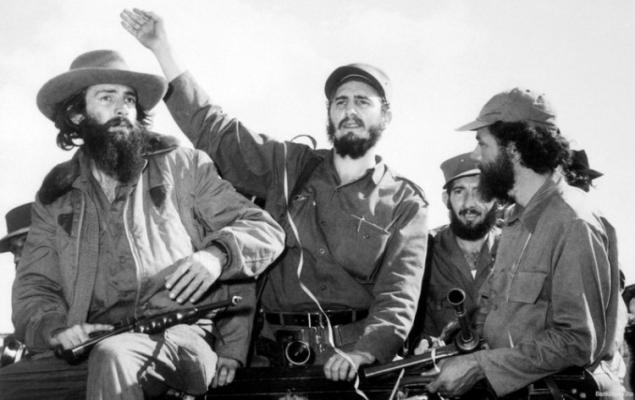
The country's economy is mainly based on tourism. Because of the long US embargo of Cuba have no access to important global markets and investment. Over the years, accumulated a lot of problems in the economic sphere: poor infrastructure, shortage of currency, fuel, fertilizer and spare parts. In the period after 1960 enormous damage to the economic development of Cuba has caused the economic blockade imposed by the US government. According to official information the Government of Cuba, at the beginning of December 2010 the direct damage caused by the economic blockade amounted to 104 billion US dollars (and taking into account the depreciation of the dollar against gold in the period after 1961 - 975 billion US dollars). And yet, despite the long-standing embargo and other problems, Cuba's GDP per person is far ahead, for example, Ukraine.
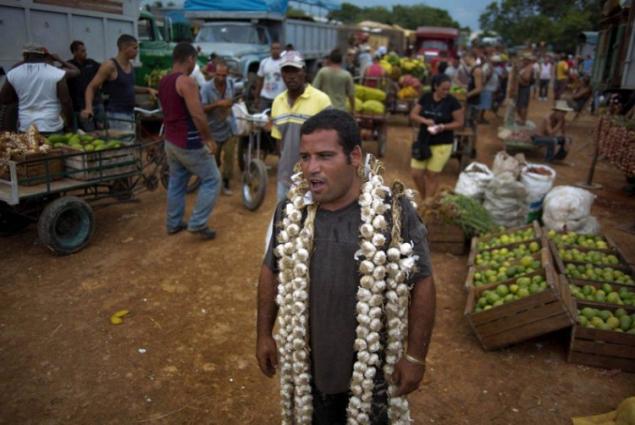
Socialist Republic of Vietnam. B>
Another existing now a socialist republic. In Vietnam, the leading role in the state and society belong to the local Communist Party. Today it is the only party in the country, the Democratic and Socialist Party ceased to exist in 1988. Public-bureaucratic system of economic management has led in the mid-1980s. to its chronic crisis. In 1986 it began a period of reforms for the development of market relations, while maintaining the socialist orientation of development. In 1990, the National Assembly passed the first laws of private enterprises, the Companies and on Limited Liability Companies, which served as a model for the French legislation. However, the State has reserved the right to full control over private enterprise.
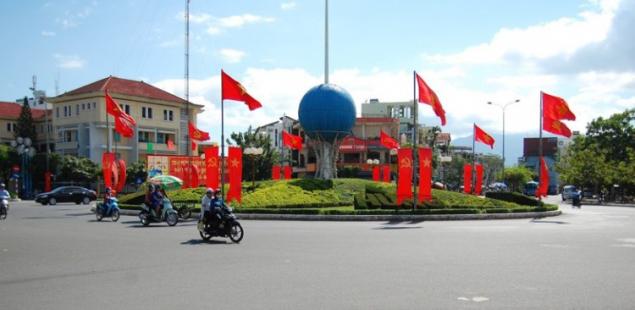
For a long time the economic growth of Vietnam and the US embargo prevented the excessive protection of the Soviet state - foreign capital in the country is not welcome. In December 1988, the Vietnamese government passed a law on foreign investment that is guaranteed to companies from other countries, that their property and profits will not be nationalized. In Vietnam we reached first companies from the Asia-Pacific region, especially South Korea and Australia, and then many others. In 1997, Vietnam's parliament to allow all provinces and districts to make their own foreign trade. On 11 January 2007 Vietnam became the 150th member of the World Trade Organization (WTO).
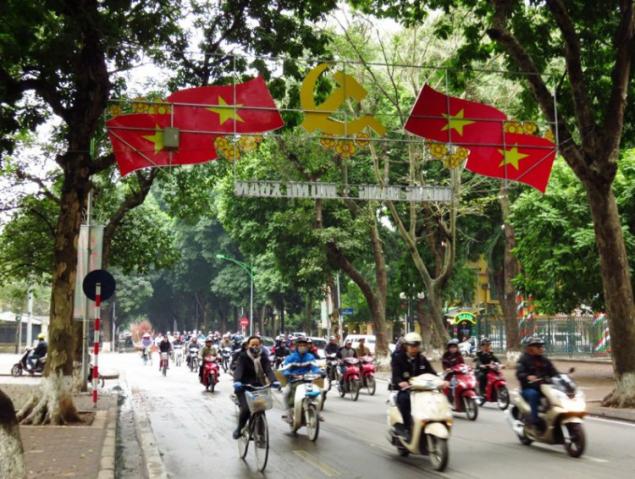
Bolivarian Republic of Venezuela. B>
Venezuela has become one of the countries that have recently become socialism to strengthen its position. In a political system is not yet a full-fledged socialist republic, but this policy is actively enforced in the country. Venezuela's economy is based on oil, which provides 80% of export revenues, more than 50% of the state budget and about 30% of GDP. President Hugo Chavez has pursued a policy to strengthen state control of the economy - he nationalized the oil companies in 2007, the communications and energy sectors. In 2008 nationalized enterprises producing steel and cement. In July 2008 Chavez issued a decree on further strengthening the subordination of the economy as part of its plan of "socialism of the 21st century».
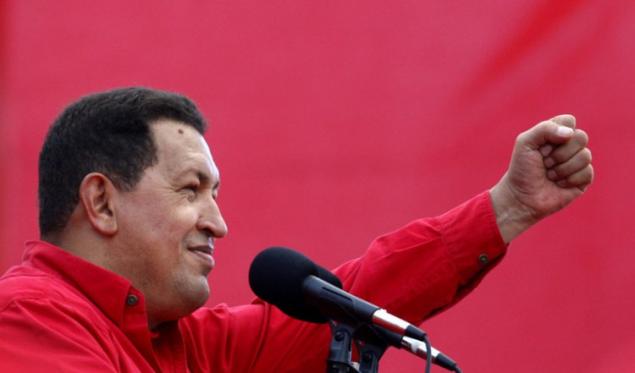
By 2013, annual inflation reached 54%. In November 2013, on the orders of President Nicolas Maduro had been arrested the owners and staff networks for the sale of household goods. With the help of the army and police products were sold at the price of 10% off the regular price. In some places, with the people who want to get the goods at a reduced price, the police deal failed and shops were looted.
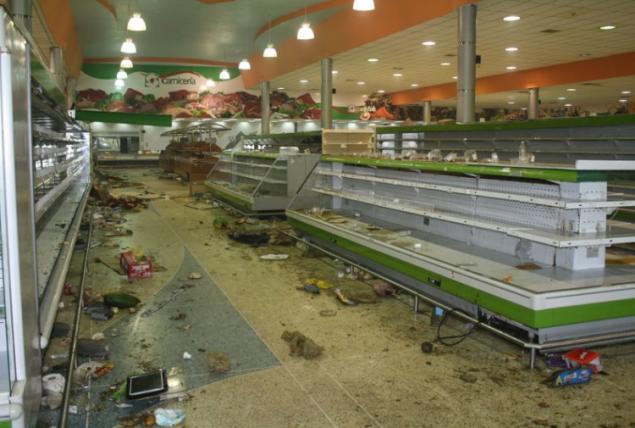
Lao People's Democratic Republic. B>
In Laos, one-party system, the country managed by the Lao People's Revolutionary Party of the communist type. Laos President is elected by the Parliament for five years. The government headed by Prime Minister of Laos, appointed by the President with the approval of Parliament. Government policy is determined by the Party of the Political Bureau of nine members, and Central Committee of 49 members.
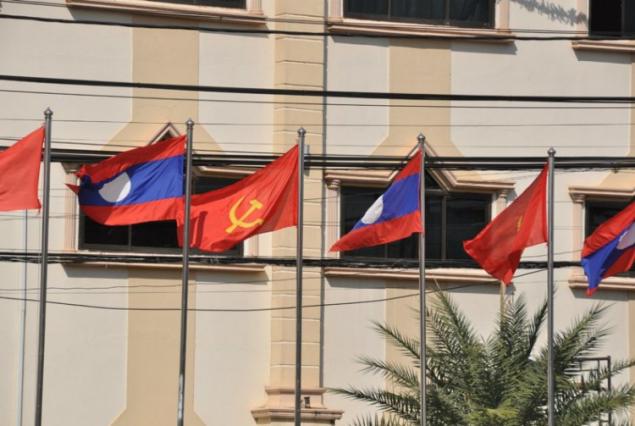
Private enterprise was allowed in Laos only in 1986, after the weakening of state control over the economy. This led to a sharp upsurge in the economy, but growth is constrained by lack of infrastructure: there were no railways, and highways network was extremely small. The basis of the economy of Laos today - agriculture. In it involved 80% of the working population, it also provides 30% of GDP.
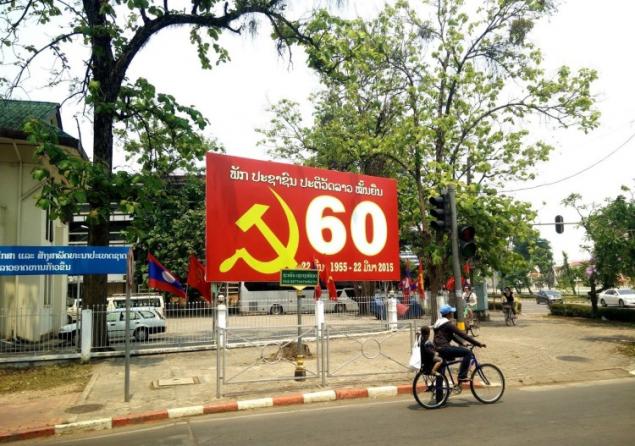
Mongolian People's Republic. B>
The Mongolian People's Republic existed from 1924 to 1992. The highest organ of state power and the sole legislative organ was the Grand National Assembly (Khural). That Great Khural claimed the constitution and amendments to it, defined the domestic and foreign policy, argued the development plans of the country economy, the state budget. Between sessions of the Great Hural supreme authority was his Presidency.
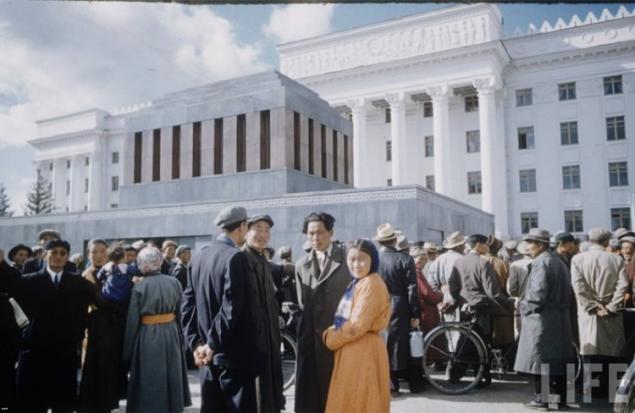
The main commercial, military and political partner of Mongolia for 70 years was the Soviet Union. With Western relations MPR countries had virtually no, except for Finland. In addition, Mongolia maintained relations with the African countries of socialist orientation, and national liberation movements such as the People's Republic of Mozambique and SWAPO, Namibia. The collapse of the Mongolian People's Republic was rather prosaic. In connection with the restructuring of the Soviet Union in 1989 the country started mass demonstrations and acts of disobedience that led to the resignation of the Politburo of the MPRP in full. Since 1990, due to the weakening of the influence of the USSR, the country's limited reforms begin, there are several opposition parties. Mongolia is now a multi-party parliamentary republic.
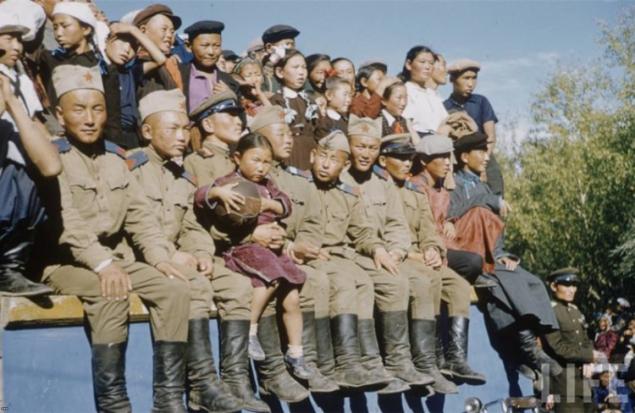
Loading ... Loading ...
Liked? Share with your friends!
Loading ... Loading ...

Peoples Republic of China. B>
The largest populous country in the world and to this day is for a one-party parliamentary form of government Socialist Republic. Peoples Republic of China - a unitary republic, socialist state of the people's democratic dictatorship. Since the proclamation of the People's Republic of China itself in 1949, the ruling party is the Communist Party of China. At the moment this is the most advanced and successful of all the existing socialist states. Since 2014, China's economy has become the first economy in the world by GDP.

However, despite the growth in the beginning of XXI century, China has faced a number of serious economic, environmental and social problems: increased income gap between rich and poor; It increased the difference in the development of villages and towns, western and eastern, especially coastal areas; increased unemployment in some areas was poisoned earth, soil and hydrosphere. In China, growing street protests. The government is extremely negative attitude towards dissent. The country has blocked almost all the world's social networks and essentially operates its own Internet within one state.

Democratic Kampuchea. B>
Democratic Kampuchea was formed in 1976 as a result of the seizure of power by so-called "Khmer Rouge" in the Khmer Republic. Their ideology based mainly on the rejection of the entire Western and modern. Government of Democratic Kampuchea were the leaders "of the Khmer Rouge." The actual management of the country's life carried out "Angka loeu" - "Supreme organization", which was headed by family clans "Khmer Rouge" leaders, including their wives. The names and portraits of the country's leaders were kept secret from the public.

Immediately after coming to power, "Khmer Rouge" set a political dictatorship. They announced a "revolutionary experiment" to build in Cambodia "one hundred percent of a communist society." There have been "canceled" - in fact, wiped medicine, education, science and culture. Hospitals, schools, universities, libraries, and all other cultural and scientific institutions were closed. They were banned money, foreign languages, foreign books. It was forbidden to write and read anything except the decrees and other documents command. Wearing glasses was seen as unreliable and served as one of the counts up to the shootings. There were destroyed, according to various estimates, from 1, 5 to 3 million people during the regime of existence (4 years).

Democratic Republic of Afghanistan. B>
Democratic Republic of Afghanistan existed from 1978 to 1992. It was a one-party parliamentary republic, focused on the construction of the socialist republic of Afghanistan. Priority measures authorities announced debt reduction landless and land-hungry peasants, elimination of usury, and the abolition of the traditional Pashtun Mahora. Plans for the development of the country the government were really ambitious. Eliminated the pre-existing feudal land tenure system, built around 250 industrial enterprises, raising the minimum wage workers by 40-50% * actively tackled the "housing problem", repaired roads, built bridges, restored the health and education systems.

As it is not banal sounds or controversial, but the problems in the existing at that time in the DRA government began just after the Soviet withdrawal. In late 1988, under the control of the Afghan government were 81% of provincial centers, 46, 8% county and township centers, 23, 5% of counties and townships. After the withdrawal of Soviet troops DRA government forces controlled most of the country (26 out of 28 provinces, 114 of the 187 district centers and villages in 6110), while the opposition armed groups controlled two provinces - Bamyan and Tolukan and 76 counties. During 1990 the DRA government army repulsed several attacks of Mujahideen, including assault on Jalalabad, Khost and Kabul. However, in the future, once in international isolation, the government of the DRA could not cope with the Mujahideen. The first half of 1991 it controlled only 10% of the country. In April 1992, the Mujahideen entered without fighting in Kabul and declared Afghanistan an Islamic state. As the British diplomat Roderick Braithwaite, in the second half of the 2000s nostalgia for the DRA was widespread phenomenon among the Afghan population.

North Korea. B>
The same North Korea, formed September 9, 1948 as the people's democratic state. Power in the country belongs to the Workers' Party of Korea headed by the first secretary of the Central Committee of the Kim Jong Ynom. The official state ideology is Juche, "relying on their strength." The country currently operates scheduled command-type economy, which, of course, very complicated isolation of North Korea from the rest of the world. North Korea is essentially a militarized state with an army of over a million people, despite the fact that all the country's population of about 25 million people. In addition, there are more in reserve to 7, 7 million. Man.

Particularly interesting is the situation with the media and the Internet in North Korea. The country has three TV channels. All television receivers of the population subject to mandatory registration, the frequency settings are locked and sealed by the authorities. Same thing with the radio. Inside North Korea listen to foreign radio is prohibited and punishable by imprisonment. Officially allowed only radios with fixed setting on the North Korean station. The vast majority of the population do not have access to the Internet. Access to the network is only at diplomatic facilities and some foreign companies. The rest of the population can only be used inside the country Gwangmyeong network is not connected to the Internet.

The Republic of Cuba. B>
The form of Cuba is a socialist republic parliamentary type. The majority of deputies in the parliament are the Communist Party of Cuba. Executive power is exercised by the chairman of the Council of State (Head of State), which in practice is both a general secretary of the Central Committee of the Communist Party of Cuba and the Chairman of the Council of Ministers - the second secretary of the Central Committee, respectively
.

The country's economy is mainly based on tourism. Because of the long US embargo of Cuba have no access to important global markets and investment. Over the years, accumulated a lot of problems in the economic sphere: poor infrastructure, shortage of currency, fuel, fertilizer and spare parts. In the period after 1960 enormous damage to the economic development of Cuba has caused the economic blockade imposed by the US government. According to official information the Government of Cuba, at the beginning of December 2010 the direct damage caused by the economic blockade amounted to 104 billion US dollars (and taking into account the depreciation of the dollar against gold in the period after 1961 - 975 billion US dollars). And yet, despite the long-standing embargo and other problems, Cuba's GDP per person is far ahead, for example, Ukraine.

Socialist Republic of Vietnam. B>
Another existing now a socialist republic. In Vietnam, the leading role in the state and society belong to the local Communist Party. Today it is the only party in the country, the Democratic and Socialist Party ceased to exist in 1988. Public-bureaucratic system of economic management has led in the mid-1980s. to its chronic crisis. In 1986 it began a period of reforms for the development of market relations, while maintaining the socialist orientation of development. In 1990, the National Assembly passed the first laws of private enterprises, the Companies and on Limited Liability Companies, which served as a model for the French legislation. However, the State has reserved the right to full control over private enterprise.

For a long time the economic growth of Vietnam and the US embargo prevented the excessive protection of the Soviet state - foreign capital in the country is not welcome. In December 1988, the Vietnamese government passed a law on foreign investment that is guaranteed to companies from other countries, that their property and profits will not be nationalized. In Vietnam we reached first companies from the Asia-Pacific region, especially South Korea and Australia, and then many others. In 1997, Vietnam's parliament to allow all provinces and districts to make their own foreign trade. On 11 January 2007 Vietnam became the 150th member of the World Trade Organization (WTO).

Bolivarian Republic of Venezuela. B>
Venezuela has become one of the countries that have recently become socialism to strengthen its position. In a political system is not yet a full-fledged socialist republic, but this policy is actively enforced in the country. Venezuela's economy is based on oil, which provides 80% of export revenues, more than 50% of the state budget and about 30% of GDP. President Hugo Chavez has pursued a policy to strengthen state control of the economy - he nationalized the oil companies in 2007, the communications and energy sectors. In 2008 nationalized enterprises producing steel and cement. In July 2008 Chavez issued a decree on further strengthening the subordination of the economy as part of its plan of "socialism of the 21st century».

By 2013, annual inflation reached 54%. In November 2013, on the orders of President Nicolas Maduro had been arrested the owners and staff networks for the sale of household goods. With the help of the army and police products were sold at the price of 10% off the regular price. In some places, with the people who want to get the goods at a reduced price, the police deal failed and shops were looted.

Lao People's Democratic Republic. B>
In Laos, one-party system, the country managed by the Lao People's Revolutionary Party of the communist type. Laos President is elected by the Parliament for five years. The government headed by Prime Minister of Laos, appointed by the President with the approval of Parliament. Government policy is determined by the Party of the Political Bureau of nine members, and Central Committee of 49 members.

Private enterprise was allowed in Laos only in 1986, after the weakening of state control over the economy. This led to a sharp upsurge in the economy, but growth is constrained by lack of infrastructure: there were no railways, and highways network was extremely small. The basis of the economy of Laos today - agriculture. In it involved 80% of the working population, it also provides 30% of GDP.

Mongolian People's Republic. B>
The Mongolian People's Republic existed from 1924 to 1992. The highest organ of state power and the sole legislative organ was the Grand National Assembly (Khural). That Great Khural claimed the constitution and amendments to it, defined the domestic and foreign policy, argued the development plans of the country economy, the state budget. Between sessions of the Great Hural supreme authority was his Presidency.

The main commercial, military and political partner of Mongolia for 70 years was the Soviet Union. With Western relations MPR countries had virtually no, except for Finland. In addition, Mongolia maintained relations with the African countries of socialist orientation, and national liberation movements such as the People's Republic of Mozambique and SWAPO, Namibia. The collapse of the Mongolian People's Republic was rather prosaic. In connection with the restructuring of the Soviet Union in 1989 the country started mass demonstrations and acts of disobedience that led to the resignation of the Politburo of the MPRP in full. Since 1990, due to the weakening of the influence of the USSR, the country's limited reforms begin, there are several opposition parties. Mongolia is now a multi-party parliamentary republic.

Loading ... Loading ...
Liked? Share with your friends!
Loading ... Loading ...
18-year-old decided to show off his new Tesla in front of friends
10 Examples of what to spend their money Celebrities
